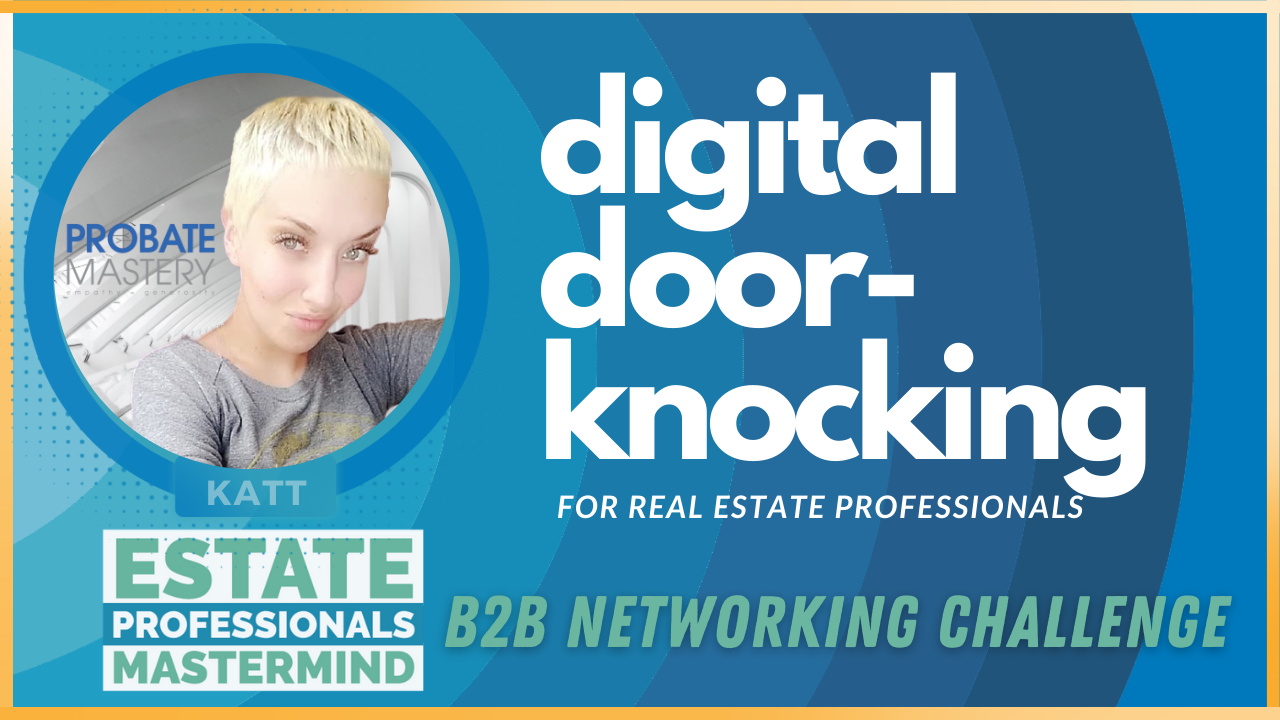
What education are you required to start your Florida real estate license? This is one of the most crucial questions you'll ask as you begin to consider Florida real estate licensure. This article will explain how much education is necessary before you can get a license. It will also discuss the time commitment and how to get the best out of your education. We will also discuss the most important courses and what prices you can expect.
Pre-licensing education
Before you can start practicing real estate in Florida, you need to complete some pre-licensing education. Pre-licensing education must be completed for at least 64 hours before you can apply and receive a license. You should be able to cover all aspects of law, real estate, and mathematics. Some courses can cost between $100 and $500. The minimum passing score required to be licensed in Florida is 70 percent. Attorneys are not required to take any prelicensing course. Instead, they can sit for a sales associate exam without having to obtain a pre-license.

There are many options for pre-licensing in Florida. You can either take the course online or visit a company in person. Some of these courses can be self-paced with practice exams. Other courses offer a range of study aids such as practice exams and books. Regardless of your choice, you should make sure to complete the pre-licensing education requirements for your state. There are several online programs that offer prelicensing education, and some of them are free.
Pre-licensing education cost
The cost of prelicensing education to become a real estate agent can vary depending on the state. There are many reasons why this is so, but the most common reason is that creating real estate courses requires a lot more time and effort. These courses are produced by companies that must pay their employees to keep them up-to-date and comply with state laws. While many brokerages and title firms offer continuing education classes for no cost, they are not always free. These courses are more thorough and longer than the other courses.
No matter what state you are from, Florida real estate licensing education is well-worth the expense. A Florida real estate exam consists of 100 multiple-choice questions and the passing score is 75%. There are 45 questions related to real estate law and principles. 10 questions test your mathematical ability. If you study properly, you can expect to pass with a score of 75% or higher.
Pre-licensing education takes time
An individual must be at least eighteen years of age and have passed a background check to get a Florida real estate license. They must have completed at most 90 hours of education before they can be licensed and take a six-hour course about contract writing. They must also have good moral character, and they must declare any criminal convictions. They cannot be granted a real property license if they were convicted in a felony conviction. They must also have their fingerprint cleared. They must then be approved by their Broker online, and then complete their continuing education requirements.

All applicants must be at minimum 18 years of age with a US social security number. Additionally, applicants must hold a high school diploma. Although real estate education is not required in Florida to become licensed broker, it can help you to get the basics down. Florida recognizes licenses from a few states, including Nebraska, Arkansas, Georgia, Illinois, and Arkansas. Florida allows applicants to apply for licenses if they hold a realty license from one of the above states. Candidates from Arkansas and Connecticut, Georgia, Illinois, or Connecticut will also need to pass the state exam.
FAQ
What is a reverse mortgage?
Reverse mortgages are a way to borrow funds from your home, without having any equity. It works by allowing you to draw down funds from your home equity while still living there. There are two types: conventional and government-insured (FHA). You must repay the amount borrowed and pay an origination fee for a conventional reverse loan. FHA insurance covers your repayments.
Are flood insurance necessary?
Flood Insurance protects you from flooding damage. Flood insurance helps protect your belongings and your mortgage payments. Learn more information about flood insurance.
Which is better, to rent or buy?
Renting is generally less expensive than buying a home. It is important to realize that renting is generally cheaper than buying a home. You will still need to pay utilities, repairs, and maintenance. There are many benefits to buying a home. For example, you have more control over how your life is run.
What should I look out for in a mortgage broker
A mortgage broker helps people who don't qualify for traditional mortgages. They work with a variety of lenders to find the best deal. This service is offered by some brokers at a charge. Others offer no cost services.
Do I need to rent or buy a condo?
Renting may be a better option if you only plan to stay in your condo a few months. Renting saves you money on maintenance fees and other monthly costs. On the other hand, buying a condo gives you ownership rights to the unit. The space is yours to use as you please.
Statistics
- Private mortgage insurance may be required for conventional loans when the borrower puts less than 20% down.4 FHA loans are mortgage loans issued by private lenders and backed by the federal government. (investopedia.com)
- It's possible to get approved for an FHA loan with a credit score as low as 580 and a down payment of 3.5% or a credit score as low as 500 and a 10% down payment.5 Specialty mortgage loans are loans that don't fit into the conventional or FHA loan categories. (investopedia.com)
- This means that all of your housing-related expenses each month do not exceed 43% of your monthly income. (fortunebuilders.com)
- Based on your credit scores and other financial details, your lender offers you a 3.5% interest rate on loan. (investopedia.com)
- The FHA sets its desirable debt-to-income ratio at 43%. (fortunebuilders.com)
External Links
How To
How to Manage A Rental Property
While renting your home can make you extra money, there are many things that you should think about before making the decision. This article will help you decide whether you want to rent your house and provide tips for managing a rental property.
Here are the basics to help you start thinking about renting out a home.
-
What should I consider first? You need to assess your finances before renting out your home. You may not be financially able to rent out your house to someone else if you have credit card debts or mortgage payments. You should also check your budget - if you don't have enough money to cover your monthly expenses (rent, utilities, insurance, etc. It may not be worth it.
-
What is the cost of renting my house? There are many factors that go into the calculation of how much you can charge to let your home. These include things like location, size, features, condition, and even the season. It's important to remember that prices vary depending on where you live, so don't expect to get the same rate everywhere. Rightmove has found that the average rent price for a London one-bedroom apartment is PS1,400 per mo. This means that your home would be worth around PS2,800 per annum if it was rented out completely. That's not bad, but if you only wanted to let part of your home, you could probably earn significantly less.
-
Is it worth it? You should always take risks when doing something new. But, if it increases your income, why not try it? Before you sign anything, though, make sure you understand exactly what you're getting yourself into. Renting your home won't just mean spending more time away from your family; you'll also need to keep up with maintenance costs, pay for repairs and keep the place clean. Make sure you've thought through these issues carefully before signing up!
-
What are the benefits? Now that you have an idea of the cost to rent your home, and are confident it is worth it, it is time to consider the benefits. Renting out your home can be used for many reasons. You could pay off your debts, save money for the future, take a vacation, or just enjoy a break from everyday life. No matter what your choice, renting is likely to be more rewarding than working every single day. If you plan ahead, rent could be your full-time job.
-
How do I find tenants Once you've made the decision that you want your property to be rented out, you must advertise it correctly. Make sure to list your property online via websites such as Rightmove. Once you receive contact from potential tenants, it's time to set up an interview. This will allow you to assess their suitability, and make sure they are financially sound enough to move into your house.
-
How can I make sure that I'm protected? You should make sure your home is fully insured against theft, fire, and damage. You'll need to insure your home, which you can do either through your landlord or directly with an insurer. Your landlord may require that you add them to your additional insured. This will cover any damage to your home while you are not there. This does not apply if you are living overseas or if your landlord hasn't been registered with UK insurers. In this case, you'll need to register with an international insurer.
-
You might feel like you can't afford to spend all day looking for tenants, especially if you work outside the home. However, it is important that you advertise your property in the best way possible. Make sure you have a professional looking website. Also, make sure to post your ads online. A complete application form will be required and references must be provided. Some people prefer to do everything themselves while others hire agents who will take care of all the details. You'll need to be ready to answer questions during interviews.
-
What happens once I find my tenant If you have a current lease in place you'll need inform your tenant about changes, such moving dates. You may also negotiate terms such as length of stay and deposit. Remember that even though you will be paid at the end of your tenancy, you still have to pay utilities.
-
How do you collect the rent? When the time comes to collect the rent, you'll need to check whether your tenant has paid up. If not, you'll need to remind them of their obligations. Before you send them a final invoice, you can deduct any outstanding rent payments. If you are having difficulty finding your tenant, you can always contact the police. They won't normally evict someone unless there's been a breach of contract, but they can issue a warrant if necessary.
-
What are the best ways to avoid problems? It can be very lucrative to rent out your home, but it is important to protect yourself. Install smoke alarms, carbon monoxide detectors, and security cameras. Check with your neighbors to make sure that you are allowed to leave your property open at night. Also ensure that you have sufficient insurance. You should never allow strangers into your home, no matter how they claim to be moving in.